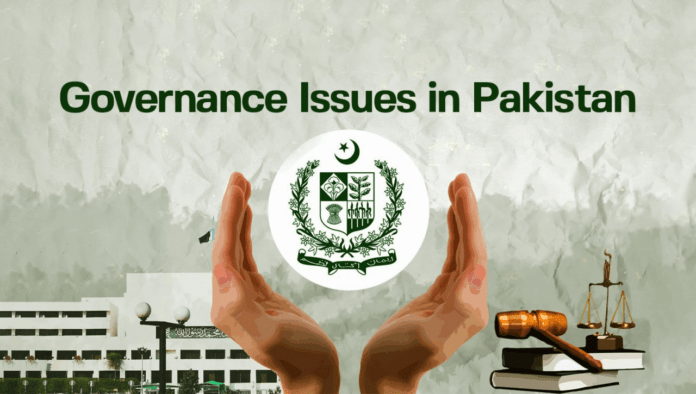Political scientists have continuously endeavoured to identify what makes an ideal or perfect state. A state which is strong to establish its writ through rule of law, ensuring equality and justice for its subjects. A lot of research has gone into finding reasons why some states fare better than others. Starting with J J Rousseau’s book ‘The Social Contract’, published in 1762, there has been a spurt of new books on this subject in the last almost fifty years. Prominent among these books are ‘Why Nation’s Fail’, by Daron Acemoglu and James A. Robinson, a book which won them the 2024 Nobel prize for economics, The Narrow Corridor by the same authors and Political Order and Political Decay, by Francis Fukuyama.
The authors of the book ‘Why Nations Fail’ say that the states having ‘inclusive’ economic and political systems thrive while those with ‘extractive’ systems fail leading to deprivation and poverty of their people. Inclusive systems provide a level playing field in political and economic fields to their citizens. It is a merit-based system based on rule of law.
In an extractive system a few persons (king, his family and close friends) or a politically powerful group monopolises the political and economic resources of the state, extracting maximum benefits for themselves. The majority of the population is deprived and is forced to live in perpetual poverty. Fukuyama in his book ‘Political Order and Political Decay’ argues that three important institutions of political order are ‘state,’ ‘rule of law’, and ‘accountability’. He says that the state should be strong, having monopoly over exercise of legitimate force and impersonal in treatment of the citizens. Rule of law means that the law should be equally applied to all citizens including the most powerful. The accountability means that the government should be responsive to the needs of the society and not only to the interests of the powerful and the elite. Accountability to the people is ensured through equal opportunity fair elections held regularly at given intervals.
The authors of ‘The Narrow Corridor’ argue that for liberty to emerge and flourish, both state and the society must be strong. A strong state is needed to control violence, enforce laws, and provide public services. A strong mobilized society is needed to control and shackle the strong state for the sake of liberty of the society. The problem with these books is that they are too theoretical and do not lay down practical steps/ methods required to create an ideal or a perfect state. In ‘Why Nations Fail’ the authors do not clarify that what systems should be adopted to change a state from being extractive to inclusive. Again, in the book ‘The Narrow Corridor’, the authors do not clarify methodology of moving a state into ‘The Narrow Corridor’, rather they hint that a certain kind of culture and historical background can only result in a mobilised and strong society which keeps a check on a strong state.
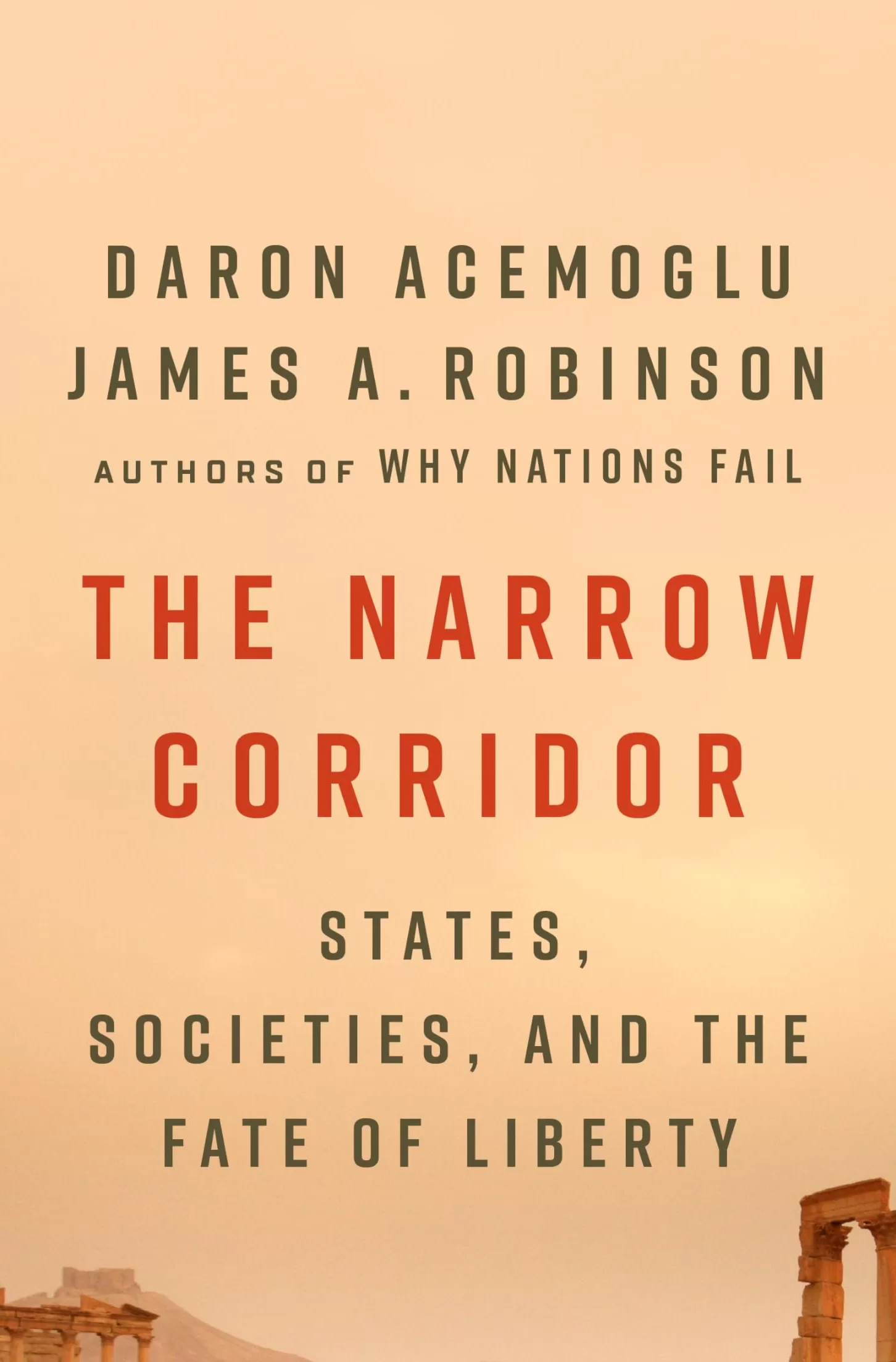
Apparently, they believe that without requisite culture and history, a state cannot move to the ‘The Narrow Corridor’. Similarly, Fukuyama has not elucidated that how the three state institutions i.e. strong state, rule of law and accountability can be established. These books have highlighted that what is good/ideal and bad/imperfect, but not clarified how imperfect can be changed to ideal. This article is an endeavor to identify the root problems/imperfections of Pakistan’s governance and the methodology required to overcome these issues, so that Pakistan’s system of governance is brought as close to ideal/perfect as is possible. Apparently, it seems that there are too many problems with Pakistan’s governance. However, when we try to identify the root cause of these problems, we come to the conclusion that there are only three basic/root cause issues. The first one is that over a long period we had very poor and incompetent leadership. Second is that we have consistently failed to establish responsible elected local governments.
The third is that the executive branch of the government has been demoralised and partially paralysed due to punitive actions of successive governments which tried to control the bureaucracy and later by judicial activism in which judiciary tried to usurp important functions of the executive. These issues and their practical solutions have been discussed in the succeeding paragraphs.
I will start with Hazrat Ali’s saying that a state can be governed with kufr (secular) but not with injustice. Simply put, it means that ‘Justice’ is the bed rock of an ideal, successful and a perfect state. For justice to prevail, two types of balances are required in a state. The first balance is between the state and the society, which is the theme of the book ‘The Narrow Corridor’. If the state becomes stronger than the society, it results in tyranny. If the society become stronger than the state then anarchy prevails. The state should be strong to establish its writ and the society should be strong to safeguard its rights. It is ensured through a constant struggle between the state and the society.
The second balance is between the three pillars of the state i.e. the legislature, executive and the judiciary. This balance is achieved through strict separation of powers of the three organs. A state is like a human body. Legislature is the brain; executive is the body and judiciary are the conscious which tells right from the wrong. Any one of the three organs if not functioning properly will lead to a dysfunctional state/ human body. Legislature like the brain, makes laws and policies, decides about the finances and provides leadership to the executive in the form of prime minister and the ministers.
The executive, like the human body, executes the policies and directions given by the legislature. Weak or inefficient executive is like having a functioning brain but paralyzed body. To check the legislature (brain) and the executive (body) from doing any harm to the people, the judiciary (conscious) plays its role. However, an activist judiciary is harmful for the state as it paralysis the legislature and the executive. If the executive becomes stronger than the other two organs it results in injustices and absence of rule of law. Too strong an executive lead to tyranny. Therefore, balance between the three pillars is essential for justice to prevail in a state.
Now coming to the first of the three root problems of Pakistan’s governance, i.e. poor/incompetent leadership. Leaders play a critical role in guiding a country to justice and prosperity. Singapore and China are recent examples of visionary leaders making their countries great. The Pakistani elite controls Pakistan through a rigged political system. The Election Act and the Election Rules have been formulated in a manner that they tilt in favour of the elite, ensuring that other classes cannot enter the power corridors. The political system which was supposed to be a democracy is in fact an elite controlled oligarchy and the economic system is not capitalist but crony capitalist. The elite is in full control of the political and economic resources of the state. The elite has perpetuated its control through a hijacked and rigged electoral system where only the very rich and powerful can contest and win. The electoral system has multiple flaws, biggest being the use of big money. “The deluge of unregulated money in politics has pushed the working and middle classes of the country out of capital-intensive political contest, making Pakistan’s democracy an elite club of the wealthy.”
The real crime is that Election Act 2017 has deliberately left loopholes for use of unchecked money in elections. Section 132 (1) of the Act states that “the election expenses of a candidate shall include the expenses incurred by ANY person or a political party on behalf of a candidate or by a political party specifically for the candidate”. However, in Section 132(5) there is a big loophole. It states that if a person makes any expense for a candidate without his permission, then the candidate is not to be held responsible for such an expense. It opens a flood gate of use of money beyond the legally allowed limit. Similarly, Section 136(1) of the Act states that The Election Commission is responsible for the scrutiny of election expenditure returns within 90 days of submission of these returns. However, Section 136(2) absolves the Commission of this responsibility by stating that if the scrutiny is not done within 90 days, then it will be deemed to have been done and the returns will be accepted as correct.
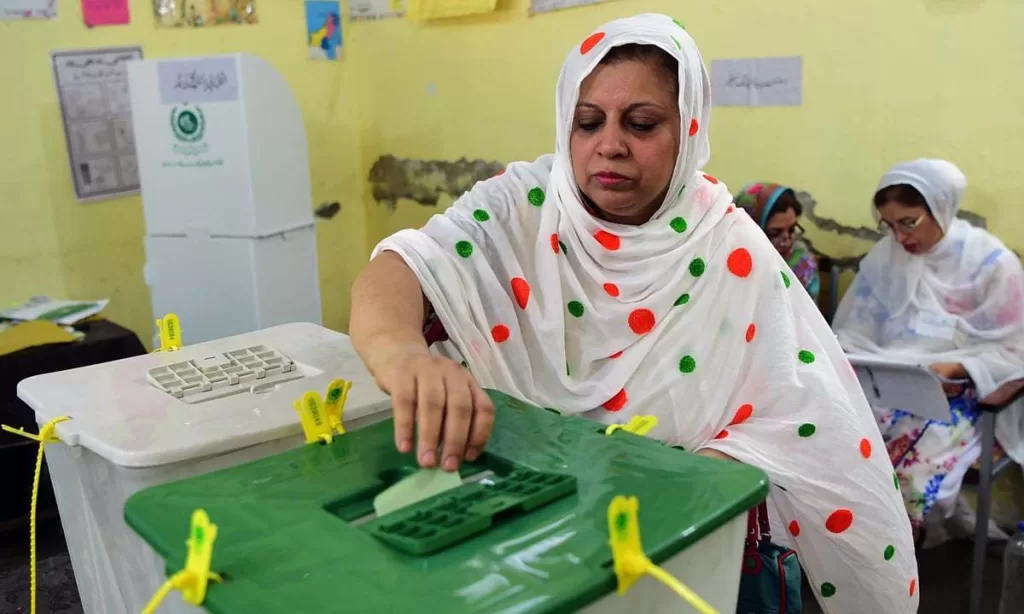
Mr. Kanwar M. Dilshad, a retired Secretary of the Election Commission, in an interview while commenting on scrutiny of election expense returns said, “There is no example where Election Commission took strong action on this matter. These expenses are always unaccounted for. The returns of candidates are an eye wash”. These are just a few of examples of how Election Act and Election Rules have been manipulated to allow for use of unaccounted sums of money as election expenditure thereby ensuring that only the elite can contest and reach the power corridors.
Next major issue with the existing election system is eligibility criteria for the candidates. Eligibility criteria as given in Article 62 of the Constitution is too open-ended, vague and full of intangibles. It is inclined towards personal conduct and apparent character traits and does not cater for the competence required to be a member of the Parliament. The criteria should be based on competence to perform the functions and roles of the Parliament. Parliament has three basic functions i.e. to legislate, executive/administrative control of the state and financial management of the public money.
Every post has eligibility criteria based on the competence to perform functions and roles expected from the position. Parliament is not a teaching academy or a place for on job training. State cannot afford the luxury of training novices in its national Parliament. Change of national leadership should be like changing a set of trained pilots during the flight of an aircraft. You cannot bring in novices and start training them in mid-air. Eligibility criteria as given in Article 62 of the Constitution should be suitably modified to bring in core competencies required to be a member of the Parliament. Next issue is that 7 days available with the Returning Officer for scrutiny of the nomination papers submitted by the candidates is too less. Elections Act 2017, Section 62(5), has given vast powers to the Returning Officers for scrutiny of the nomination papers.
However, the problem is not of powers but of less time, capacity and will to carry out thorough scrutiny. On the average, a Returning Officer has to carry out scrutiny of more than ten candidates. The officers eligible for appointment as Returning Officers are not trained for investigative work specifically about financial white-collar crimes. “There is a lot of fog about the processes and procedures of conducting scrutiny by ROs in just 7 days. There are no rules, procedures or set processes to conduct this scrutiny. Every RO is forced to devise methods he deems fit, thereby turning the process into a farce, inviting severe criticism from general public and the media”.
A retired senior officer of the Election Commission opined that the scrutiny period should be at least 30 days. Therefore, there is a need to clearly define rules and procedures for scrutiny and extend its duration to at least 30 days. It would give respect to the Constitution, the election system and ensure that incompetent and criminals do not slip through the faulty scrutiny procedures. Next problem is that a few families have a cancer like stranglehold on national and provincial politics. To break this stranglehold its imperative to lay down that an individual can be Prime or Chief Minister for only two terms. The immediate family members should also be barred to be candidates for these posts for at least ten years. Political parties Act should also bar an individual to head a political party for more than two terms. This will bring fresh blood in national politics and also democratise the political parties.
Due to paucity of space only glaring issues of our electoral system have been highlighted. There are many other issues of electoral system which need to be addressed. Therefore, there is a need for a comprehensive package of electoral reforms to ensure equal opportunity for all citizens to contest the elections and have fair chance to win purely on merit. Only then the elections could be termed as ‘conducted honestly, justly, fairly and in accordance with the law’ as required under Article 218(3) of the Constitution of Pakistan.
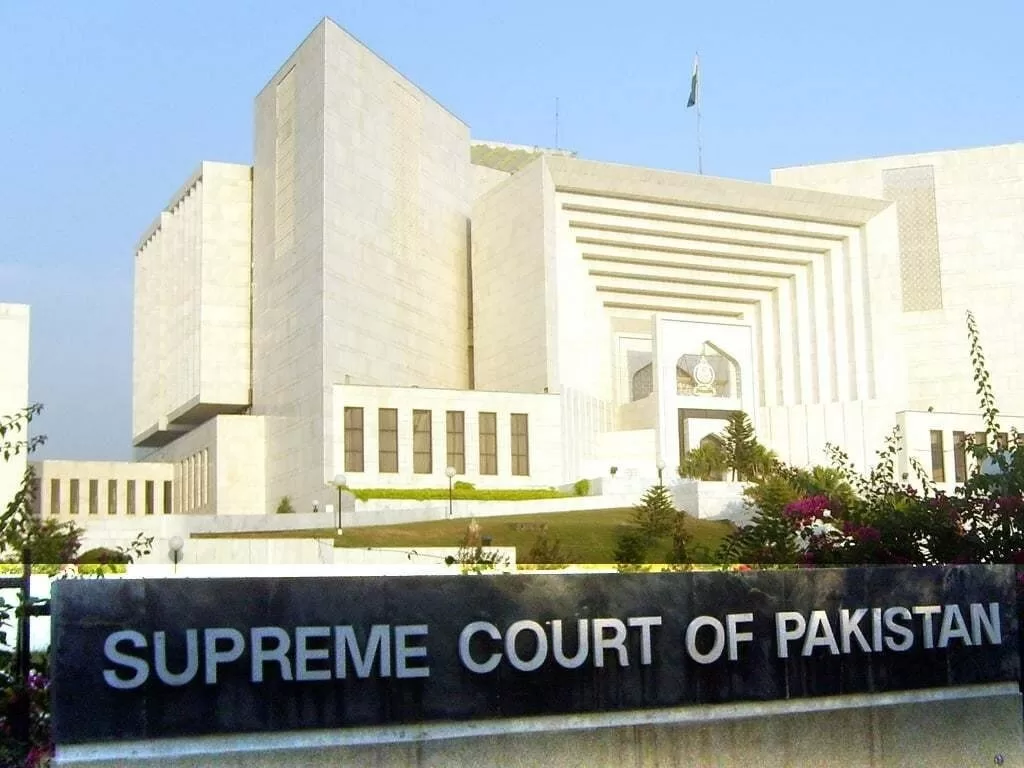
The second root problem is that the elite have resisted the establishment of elected and fully empowered local governments as envisaged in Article 32, 37(i) and 140 A of the Constitution of Pakistan for the last 77 years. The people are more interested in governance than in the government. Governance means service delivery to the people. Major responsibility of service delivery lies with the local governments as opposed to federal and provincial governments. The main functions of federal government are making laws and policies and overseeing their implementation. These functions are abstract, theoretical and philosophical rather than practical in nature. This tier is most distant from the people in space and functions. The second tier i.e. provincial government is usually created for administrative ease as large states cannot directly govern all parts of the country efficiently. Provincial governments have autonomy within their geographical limits but not the sovereignty which is the sole domain of the federal government. Provincial governments follow the laws and policies of the federal government and also make additional laws and policies to effectively govern within their jurisdiction. The main functions of provincial governments are policy coordination and its implementation. They are a link between the federal and local governments. The third and the most important tier is the local government.
At this tier all the laws, policies, rules and regulations are executed for the benefit of the people. All municipal functions are executed at this tier. Almost all of the problems facing a citizen are their responsibility. Good or bad governance depends on the efficiency of the local government. Efficiency is reflected in the response of the staff to the needs of the society and the response is dependent on the accountability of the staff through elections. Non-elected staff will be responsive to the needs/orders of those who appointed them, which is usually provincial government in Pakistan. Elected local government will be sensitive to the true needs of the people, which is the actual purpose of this tier. Pakistan’s 1973 Constitution clearly demands establishment of the Local Governments in Article 32, 37(i) and 140 A. Article 7 while defining the state also mentions local government. This article clarifies that the governments at all the three tiers have the power of taxation. It therefore mandates that local governments with power to tax have to be established and not just local bodies which have limited powers and thus are not very effective in resolving people’s problems. Article 140A makes it mandatory to establish elected local governments which have devolved political, administrative and financial responsibility and authority.
Unfortunately, fully empowered elected local governments were never established in Pakistan in the last 77 years. The ruling elite never went beyond establishing local bodies with limited powers. Constitution always mentioned local ‘government’ and not local bodies. The elite wants to monopolise the political and economic power for its ulterior motives and is reluctant to share it with the masses. People of Pakistan feel betrayed by the democracy as it failed to fulfill their dreams and their aspirations. Actually, it’s the application of democracy only at federal and provincial levels that led to negative feelings of the people about democracy. The true definition of democracy i.e. by the people, of the people and for the people, cannot be realised without representative, fully empowered, local governments. This is only possible when the elite either voluntarily or under coercion devolves political and economic powers to the local governments.
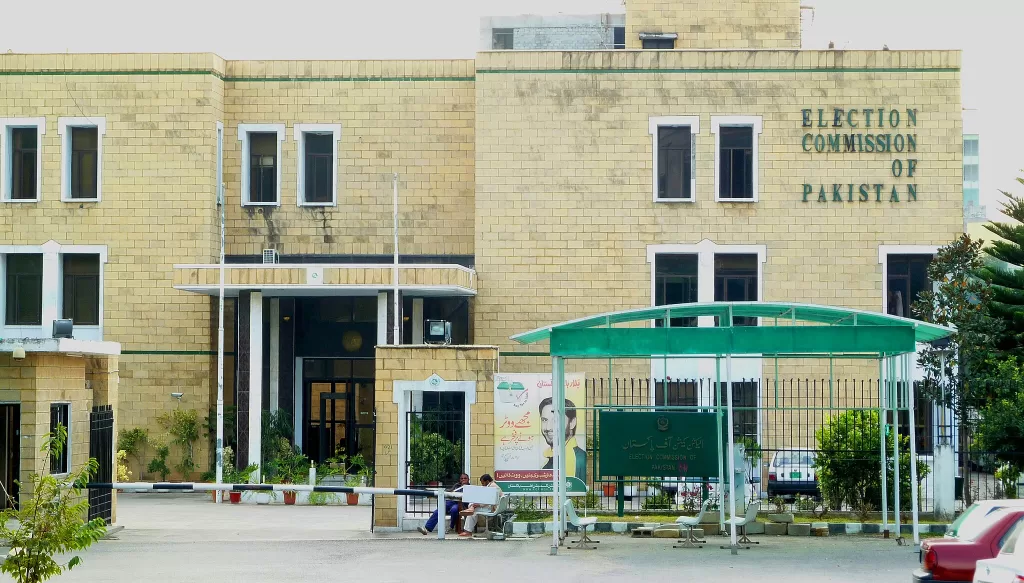
Study after study have proved that devolution of powers to local governments has dramatically improved service delivery to the people. Writing about local governments of Pervez Musharraf era, Dr. Ishrat says, ‘Decentralized decision making has proved to be the cornerstone of democratic governance. In the cost-benefit analysis, allocative efficiency is superior under a decentralised system.’ Local Governments help to improve tax to GDP ratio as it is more efficient for local tax departments to collect taxes as compared to centralized tax collection system. In most of the developed countries the local governments collect approximately 45% of the total tax paid by an individual. Local governments which collect their own revenue usually are more responsible in their expenditure and avoid deficit in their budgets. Elected local governments have consistently proved that their service delivery in education and health care is superior to bureaucracy controlled local bodies. Even law and order improve substantially when elected local governments have their own police and magistrates as compared to these departments being under the provincial governments.
In short elected local governments having financial and administrative autonomy result in improved governance. However, the biggest benefit of elected local governments is that the political and economic power of the state is devolved to the people thereby substantially weakening the stranglehold of the elite. The fear of losing control over state resources is the main reason why the elite in Pakistan have never allowed the lowest tier of the government to function as required by the Constitution. Therefore, to make governance inclusive, the most important step is the establishment of elected local governments. This is the simplest and most effective way of making Pakistan’s governance inclusive, thereby empowering the people. Economic power follows the political power. Those having political power also control the economic resources of the state. Governments and scholars have gone wrong is professing direct redistribution of wealth through cash distribution or adoption of communist system. Instead of redistribution of wealth, the political power should be devolved to the people through empowered local governments. Economic resources will automatically get devolved and redistributed. The political power and economic resources belong to the people and should be handed over to them as required by the Constitution.
The third root problem is almost paralyzed bureaucracy of Pakistan. Bureaucracy like muscles in a body, executes the policies of the government. If the bureaucracy is weak or paralised, even best plans/ policies of the government will fail to be implemented. Pakistan inherited a very efficient bureaucracy but successive governments starting with Ayub Khan, in an effort to control them, did more harm to bureaucracy than reform it. Lately judicial activism has resulted in encroachment of bureaucracy turf. It not only weakened bureaucracy but imbalanced the power structure between the three pillars of the state. In the last two decades, NAB proved to be the proverbial last nail in the coffin of bureaucracy.
Since independence, almost forty commissions have been tasked to reform the bureaucracy. Rarely were their recommendations adopted because of entrenched interests of different groups, strongest being the bureaucracy itself. Incompetent and weak politicians have consistently failed to take difficult but correct decisions about the reforms of bureaucracy. Without an efficient bureaucracy, no plan can be implemented in the true spirit. Therefore, requisite reforms have become a necessity. This paper is not an attempt to put forward another set of suggestions for reforms as enough material already exists on the subject. However, only a few important aspects of the reforms are proffered. First are the conceptual contours of the required changes. The bureaucracy should give primacy to social justice and be people centric instead of being rules bound. Whenever there is a conflict between rules and social justice, then social justice should take precedence. The size of the bureaucracy should be dictated by the need for policy making, coordination and as regulators. Service delivery and operations should be sub contracted to the private sector based on open competition. Some of the important reforms being suggested are as follows. First is that the judicial powers of the executive branch should be restored. Without these powers, executive has become toothless and thus ineffective. Article 175 about separation and independence of judiciary has been misinterpreted. Separation was supposed to be administrative to ensure independence of judiciary so that other branches of the state could not influence its functioning. Separation of functions was not envisioned and is neither practiced in other countries. The 1994 decision of the Supreme Court to separate functions of the three branches of the state has in fact in-separably entangled judiciary with the executive. Judiciary has become overburdened once it got entangled with the executive. At the same time the executive has been almost paralyzed by over interference of judiciary. Resolution of this issue will not only separate executive from subservience of judiciary but also restore the much-needed balance between the three pillars of the state. Next reform required in that the executive branch should have autonomy in its internal functioning specially in postings, promotions and tenure without political interference. Next issue is that the promotions should be controlled by an autonomous board and not based on fitness cum seniority. These are some of the important reforms required for an efficient and effective bureaucracy. At the start of this article I had written that for an ideal state, first there should be a balance between the state and the society and second, there should be balance between the three pillars of the state. With the reforms suggested above these two balances are achievable. Most important and low hanging fruit is establishment of empowered local governments.
Before venturing any further, the issue of role of establishment in the politics of Pakistan should be understood. Many people believe that establishment’s interference in the politics is the main cause of our problems. The question to be asked is that why establishment interferes in the politics. As in physics, there cannot be vacuum in exercising of political power. An incompetent/weak politician depends on bureaucracy or establishment to exercise these powers. His incompetence generates the vacuum which sucks other forces into political domain. The bureaucracy dominated during the fifties and establishment thereafter, except during Bhutto era in seventies. This vacuum at the top can be eliminated if trained/competent politicians get elected through electoral reforms suggested earlier in this article. Competent politicians’ rule through their knowledge and experience and are not dependent on other forces to come to power and rule the country. Now comes the most important question i.e. how to bring about these changes or how to catch the bull of the elite by the horns.
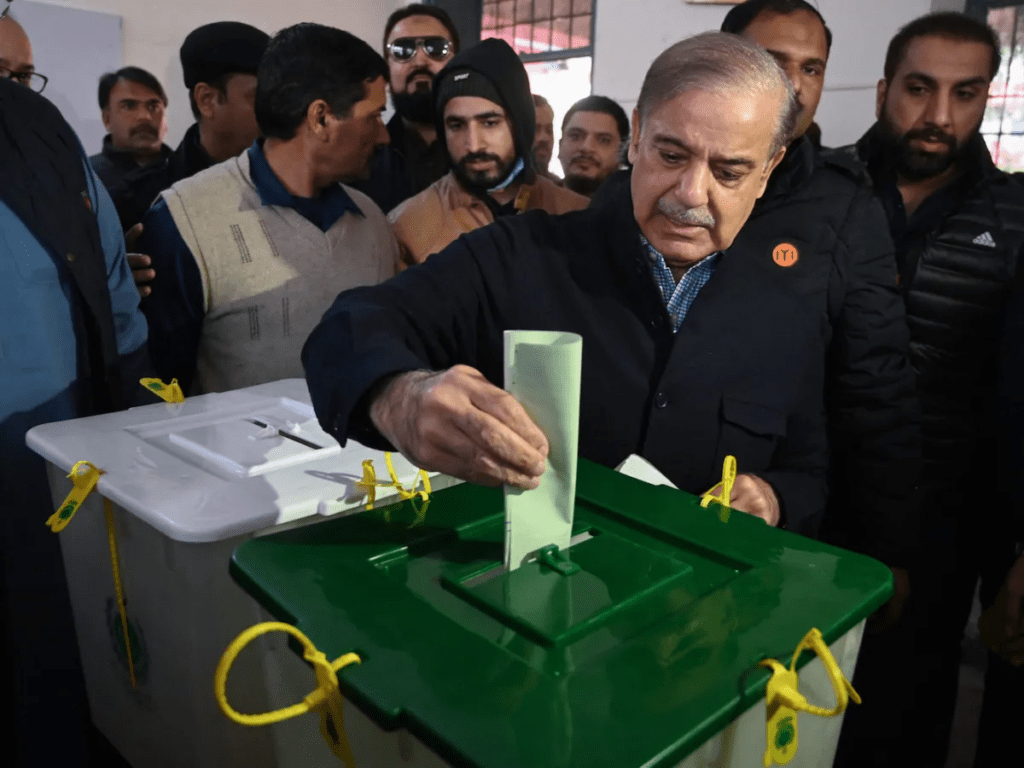
There are two main methods of political change, revolutionary or evolutionary. Revolution is violent but quick. History proves that revolution brings more harm than good to a society and usually ends up in dictatorship. Examples are French and Russian revolutions. Evolutionary change is slow, at times frustrating but in the long term is more beneficial to the people. Evolutionary change can be top-down i.e. the rulers/elite bring the change usually to overcome a challenge. This challenge could be pressure by the people through nonviolent means or to meet a threat by other states as in Japanese Meiji restoration in 1860.
Britain is another example of topdown model where the ruling elite slowly, over a long period kept sharing power with the people because of the constant pressure generated by the middle class. Bottom-up struggle is the popular method of change where the people either rise in revolt or through nonviolent struggle force and change. ‘Nonviolent struggles for change are twice as likely to achieve their goals as compared to violent campaigns. Nonviolent campaigns are successful 53% times as compared to 26% of violent protests. It was realised that when 3.5% of the population actively participates in nonviolent protests, it ensures serious political change. There wasn’t any campaign that had failed after active participation of 3.5 % of the population.’ First thing required to initiate the change is an idea/ideology. “Ideology is the best tool to mobilise and politicise the masses; to arouse them to act”. Next requirement is of a charismatic leader who can convince the people about the idea. Example is of Allama Iqbal giving the idea of Pakistan and Quaid e Azam convincing the people about it and getting it done.
Coming to Pakistan, the people have continuously strived for change through ballot and bullet. The Bengalis initially tried ballot and later bullet to rightly or wrongly, break the status quo, which they felt had failed them. People of rest of the country have continuously sought change through ballot and street protests for a just system of governance. Last two elections indicate that the people are alienated with the ruling elite and have rejected the old political parties. They are now ready to try any new person or party which promises change. Majority of the people, intelligentsia, academia and main stream media is dissatisfied with the existing system due to its failure to deliver social justice. It’s time that the rent seeking rulers realise that theirs and state’s survival lies in voluntary devolution of the political power to the people. People have lost faith and patience with over centralisation of political and economic resources of the state. The academia and media should take the lead in galvanising the civil society for nonviolent struggle for their rights. The demands should be very clear as highlighted in this paper. Vague demands result in vague promises. The idea against the status quo is very clear and believed by the majority. The critical mass of 3.5% active participants is achievable in the present environment.


